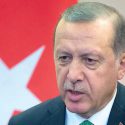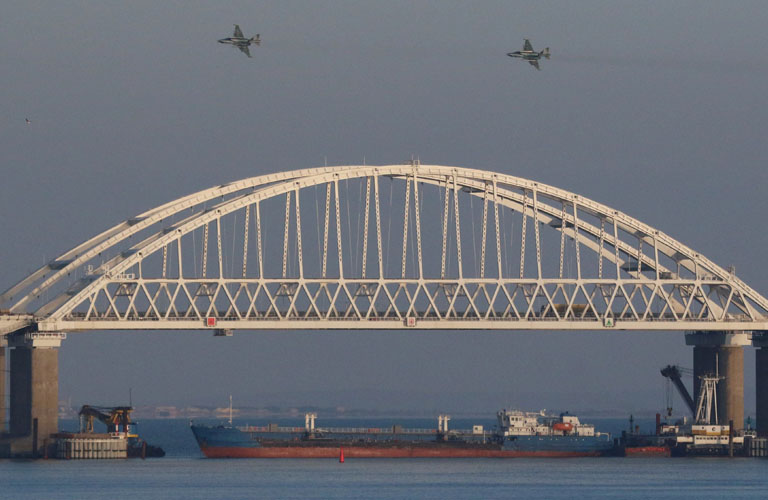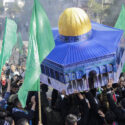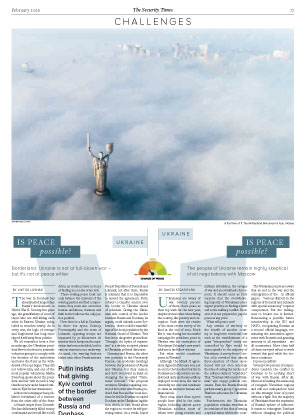Ukraine: Is peace possible?
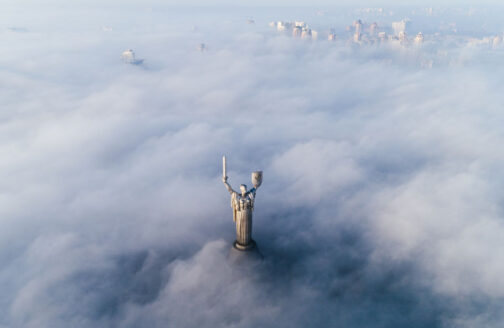
The war in Donbass has already lasted longer than Russia’s involvement in World War II. Seventy-five years ago, the grandfathers of most of those who are still killing each other in Eastern Ukraine today, toiled in trenches nearby. As in every war, the logic of revenge and forgiveness has long since ripped itself away from politics.
We all remember how, a few months ago, the Ukrainian president flew to the front to persuade volunteer groups to comply with the decision of the authorities and leave the front as the withdrawal of troops began. They did not believe him, and one of the most popular volunteers, Masha Zveroboy, spoke about the president and his visit in such a way that she is now under heated criticism in Kyiv for her statements.
A Moscow newspaper has published revelations of a heroine from the other side of the front – a female sniper from Donetsk. She has deliberately killed enemy combatants and would like to kill more. She is about 30 years old, has a husband, two children and a house full of beloved pets. She says that she has never shot at soldiers in Ukraine’s armed forces, but only at volunteers. One soldier she wounded deliriously shouted “Mummy!” She emptied a whole cartridge of her sniper rifle into him and does not regret it. War. She will never forget how her husband was shot and seriously injured near the city of Horlivka.
Over the past five years, thousands of people on both sides of the conflict have become professionals in war, which allows them to write everything off. For example, it’s noticeable that some of the volunteers fighting on both sides have fled to escape their debts, as creditors have no hope of finding you on the other side.
Those seeking peace must not only balance the interests of the warring parties and find compromises, they must also overcome human ambitions, traumas and faith in the bullet as the only justice possible.
Now there is a lull in Donbass. In three hot spots, Zolotoy, Pervomaysky and the town of Luhansk, opposing troops are separated by 50 kilometers. At another three hotspots, the separation has been scheduled, but for various reasons is not underway. As usual, the warring factions blame each other. Pensioners are taking advantage of the lull; on days when Ukrainian pensions are issued, thousands of elderly people cross the border – that is, the front – in order to queue for hours at ATMs.
It seems that their lives will not become more peaceful just yet. Ukraine would like to change the Minsk Protocol, both in terms of content and scheduling. Thus, Kyiv would like to take control of the border between Donbass and Russia before the elections in the People’ Republics of Donetsk and Luhansk, not after them. Russia is adamant that it is impossible to amend the agreement. Putin refuses to transfer control over the border to Ukraine ahead of schedule. Giving the Ukrainian side control of the border between Russia and Donbass, he argues, could unleash a new Srebrenica – there could be mass killings of the local population by the National Guard of Ukraine. This fear is not altogether groundless. “Strangle the hydra of separatism” is a widely accepted phrase in Ukrainian political discourse.
Germany and France, the other two partners in the Normandy Format, can moderate meetings between the presidents of Russia and Ukraine, but they cannot, and don’t even want to, insist on changing the so-called “Steinmeier formula.” This proposal envisions Ukraine regaining control of its border with Russia provided that free and fair local elections be held in Russian-occupied Donbass under Ukrainian legislation, which, in turn, would allow the region to receive its self-governing status. As a result, hopes for peace in Eastern Ukraine are again giving way to distrust and confusion.
This is due primarily to overblown expectations of the Paris meeting held at the end of last year. Clearly, there is sympathy for the young Ukrainian president, even among Russians, many of whom are aware of Zelensky’s efforts to maintain his election promise and achieve peace in Donbass. This includes his telephone conversations with Putin – during the last year-and-a-half of Poroshenko’s reign, the Russian president had refused to talk to Ukraine’s president. It also includes the return of Ukrainian ships held in the Kerch Strait. And there were two exchanges of prisoners, including key figures such as the Luhansk militia officer Volodymyr Tsemakh and the Ukrainian filmmaker Oleg Sentsov, who had been sentenced to life in a Russian prison. Sentsov expresses little faith in a possible Donbass settlement: “Putin doesn’t regard us as a state. For him, we are little more than a rebellious province that the empire should call to order.”
Before nationalists staged mass protests, Zelensky had expressed his faith in achieving a breakthrough toward peace at the Paris talks. Not long beforehand, Andriy Yermak, Zelensky’s top adviser, spoke of Kyiv’s readiness for constitutional reform and the provision of special powers for Donetsk and Luhansk. The problem with this approach, however, is that it would turn the separatist-controlled territories into a state within a state. It’s easy to see how other ethnic enclaves – such as Hungarians in Transcarpathia – would react to this. The fact remains that the Minsk Protocol had the support of Kyiv. But creating a territory within the country that is beyond Kyiv’s control would have catastrophic consequences for Zelensky’s career.
Speaking the night after the talks in Paris, the president expressed views on key political issues that were almost in line with his rival and predecessor Poroshenko: Ukraine will not accept constitutional changes that will lead to a violation of the country’s unity, and the government will never negotiate directly with the leaders of the DPR and LPR.
What will happen to Donbass if Russia rigidly supports the “Steinmeier formula,” Ukraine insists on changes to the agreement and Europe continues to pressure Moscow with sanctions? The answer to this question remains elusive in the Russian capital because everyone suspects Donbass will gradually become another Transnistria. Just as in Moldova, Eastern Ukrainian authorities will not be able to find a common political denominator. But economically and in terms of everyday life, people will learn to live together.
There are reports that the Ukrainian government is now considering resuming railway links with the districts of Donetsk and Luhansk, regions not controlled by Kyiv. Given its coal-oriented CHP power plans and industry, it’s proving difficult for Ukraine to live without coal from Donbass. Yet, despite the ban, there are all sorts of ways to acquire coal.
For example, one Belarusian oligarch has received a large quota for the sale of Russian coal to Ukraine. Whether the coal is from Russia or Donbass is an open question. And finally, the question of the transit of Russian gas through Ukraine has been settled and takes into account the interests of the territories occupied by the separatists.
Geopolitics has played a cruel joke on everyone: on those who were in a hurry to become part of the liberal world; on those who did not want to; and on those who, like in Putin’s Russia, tried to prevent it by all means possible. It seems that the new political generation will have to start from a point even more distant and incomprehensible than the Belovezha accords that regulated the end of the USSR.
VIKTOR LOSHAK
is strategy director for the Moscow daily Kommersant.

